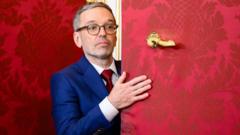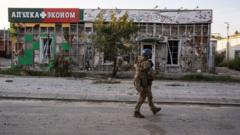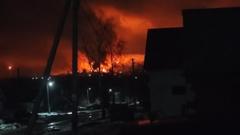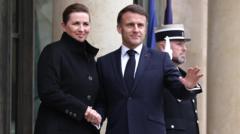Austria's President Alexander Van der Bellen has appointed Herbert Kickl, leader of the far-right Freedom Party (FPO), to navigate coalition talks, potentially signaling the country's first government led by a Eurosceptic party.
Austria's Freedom Party Takes Center Stage in Coalition Talks

Austria's Freedom Party Takes Center Stage in Coalition Talks
Herbert Kickl and Austria's far-right party make history as coalition negotiations commence.
Austria is poised for a historic shift as President Alexander Van der Bellen has entrusted Herbert Kickl, the head of the far-right Freedom Party (FPO), with the crucial task of forming a coalition government. This development could mark the first instance of a government under the leadership of the Eurosceptic, Russia-friendly party, which previously held power only as a junior partner. The FPO emerged as the frontrunner in the recent elections, securing approximately 29% of the votes, yet initially faced resistance from other political factions.
Following a period of complex negotiations, where the conservative People's Party (OVP) attempted to forge alliances but ultimately failed, the political landscape has shifted. Former Chancellor Karl Nehammer, who previously criticized Kickl and the FPO, resigned after his coalition efforts collapsed. The new conservative leader, Christian Stocker, has expressed openness to discussions with Kickl, thereby paving the way for these watershed coalition talks.
Van der Bellen's decision to task Kickl comes after significant political tensions, as his delay in recognizing the FPO's standing after the elections aggravated the party. The President, known for his critical stance on the FPO's policies, acknowledged the weight of his decision and reiterated his commitment to upholding Austria's democratic principles, including human rights and EU membership.
One of the defining aspects of the coalition dynamics lies in the overlapping positions both parties share on immigration, though stark differences exist regarding EU policy and the FPO's stance on aid for Ukraine amid the ongoing conflict with Russia. While the timeline for the coalition negotiations remains uncertain—the process typically spans two to three months—failure to reach an agreement could prompt a snap election, especially as recent polling indicates a surge in support for the Freedom Party since September. The eyes of Europe will keenly watch the outcome of these developments in Austria's political arena.






















